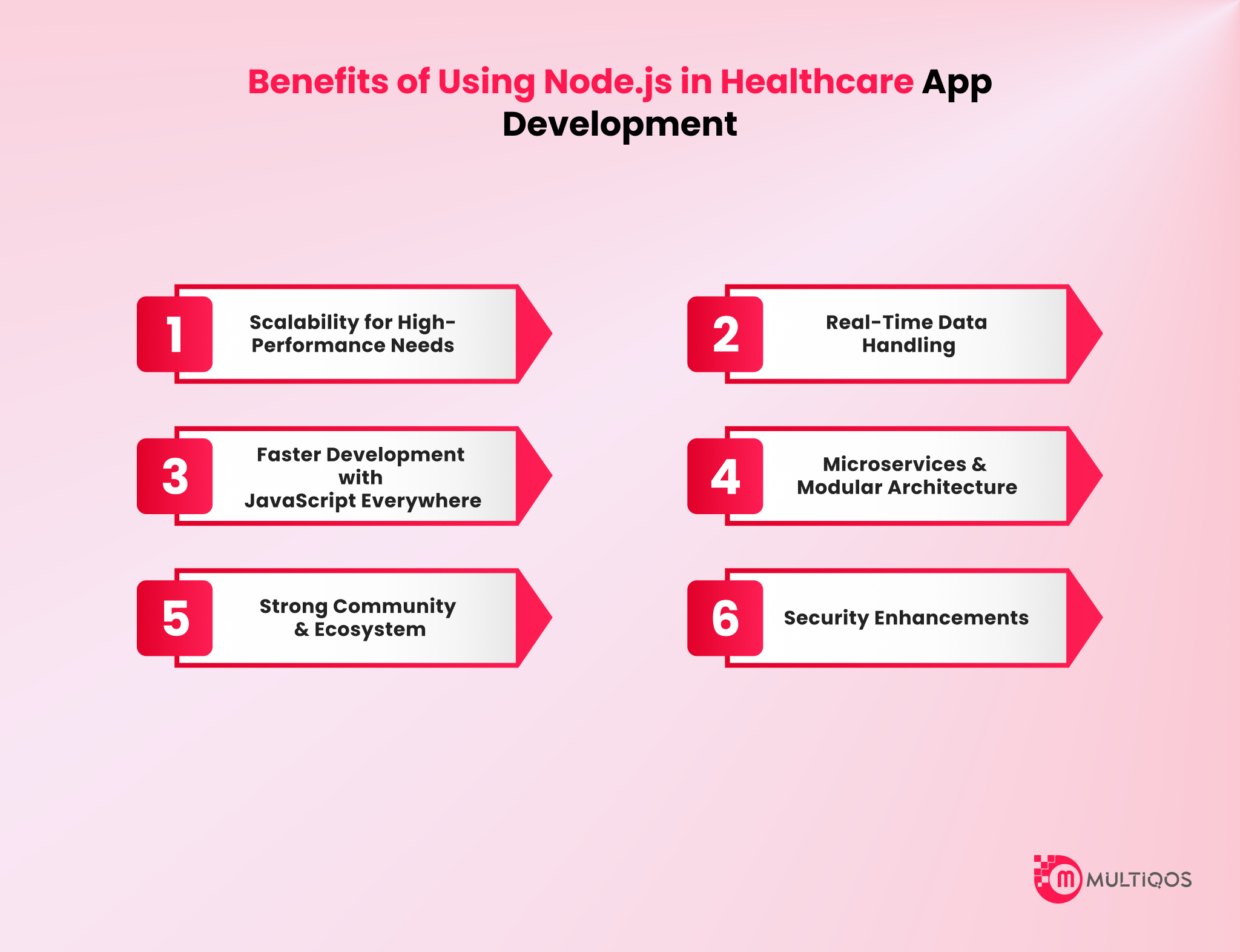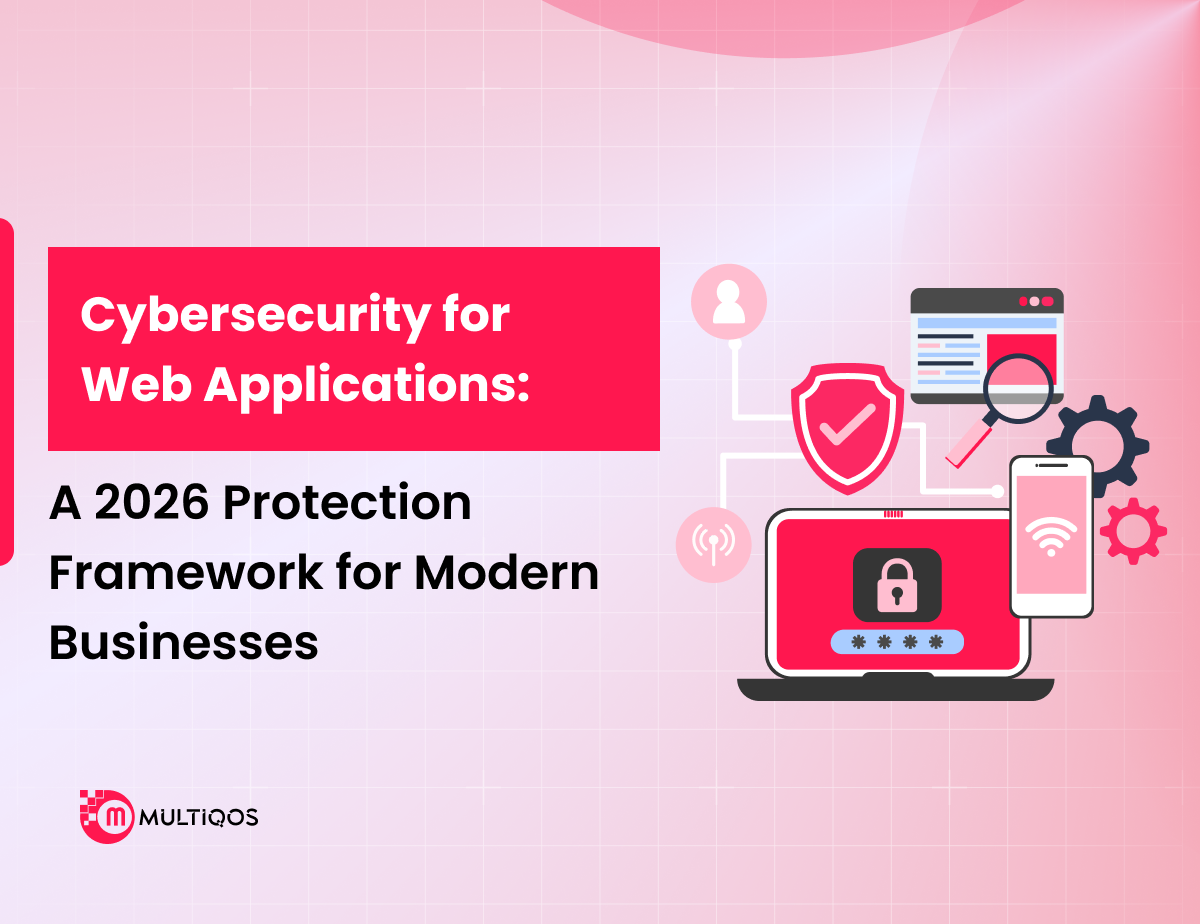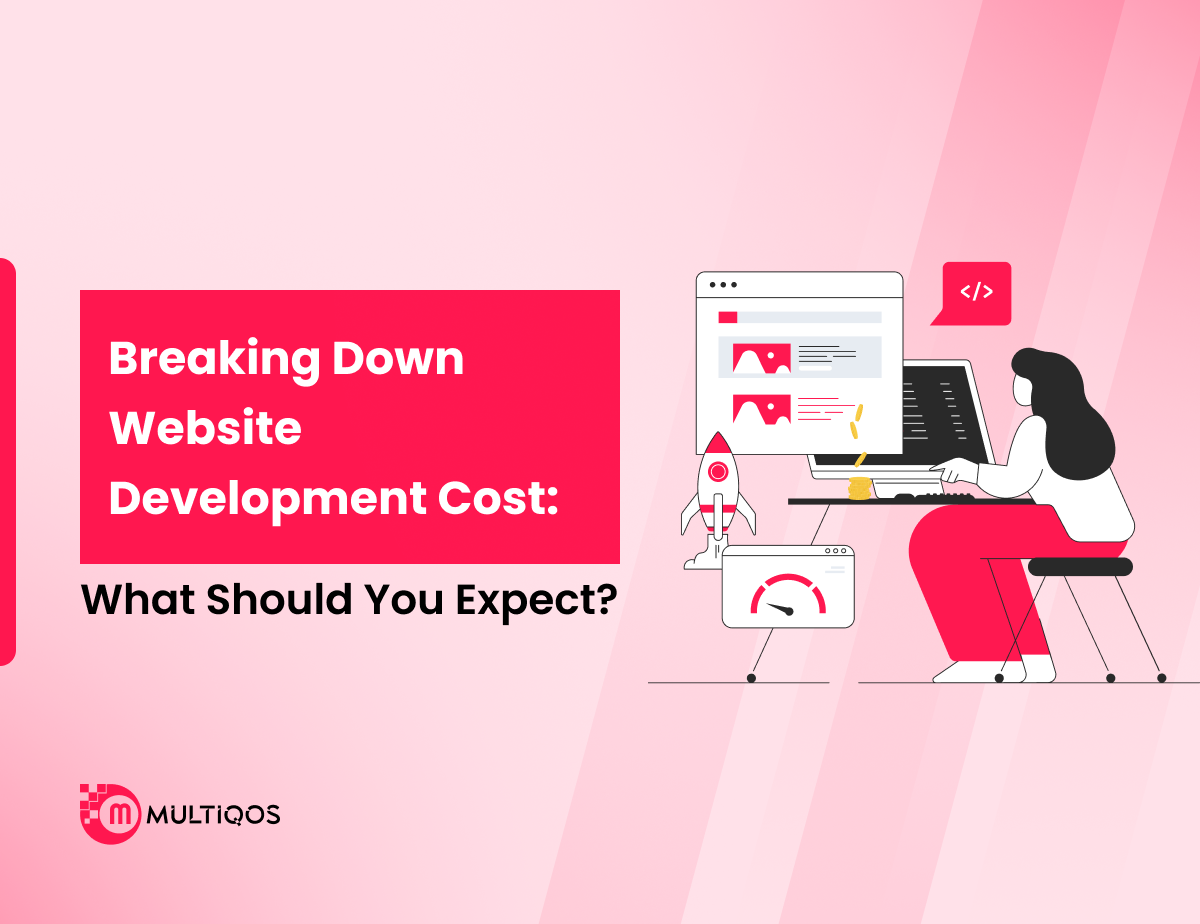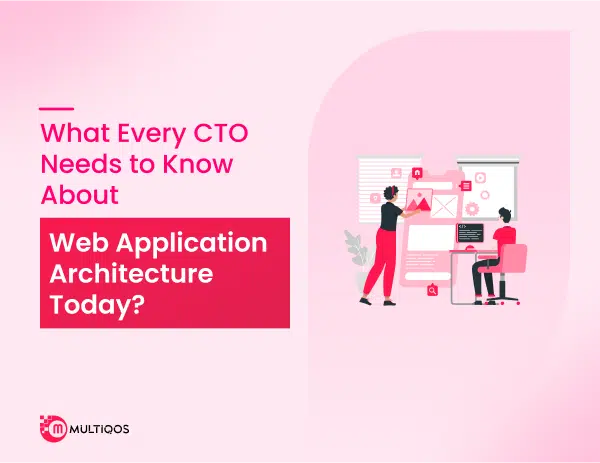Why NodeJS for Healthcare is the Go-To Choice for Scalable Health Apps?
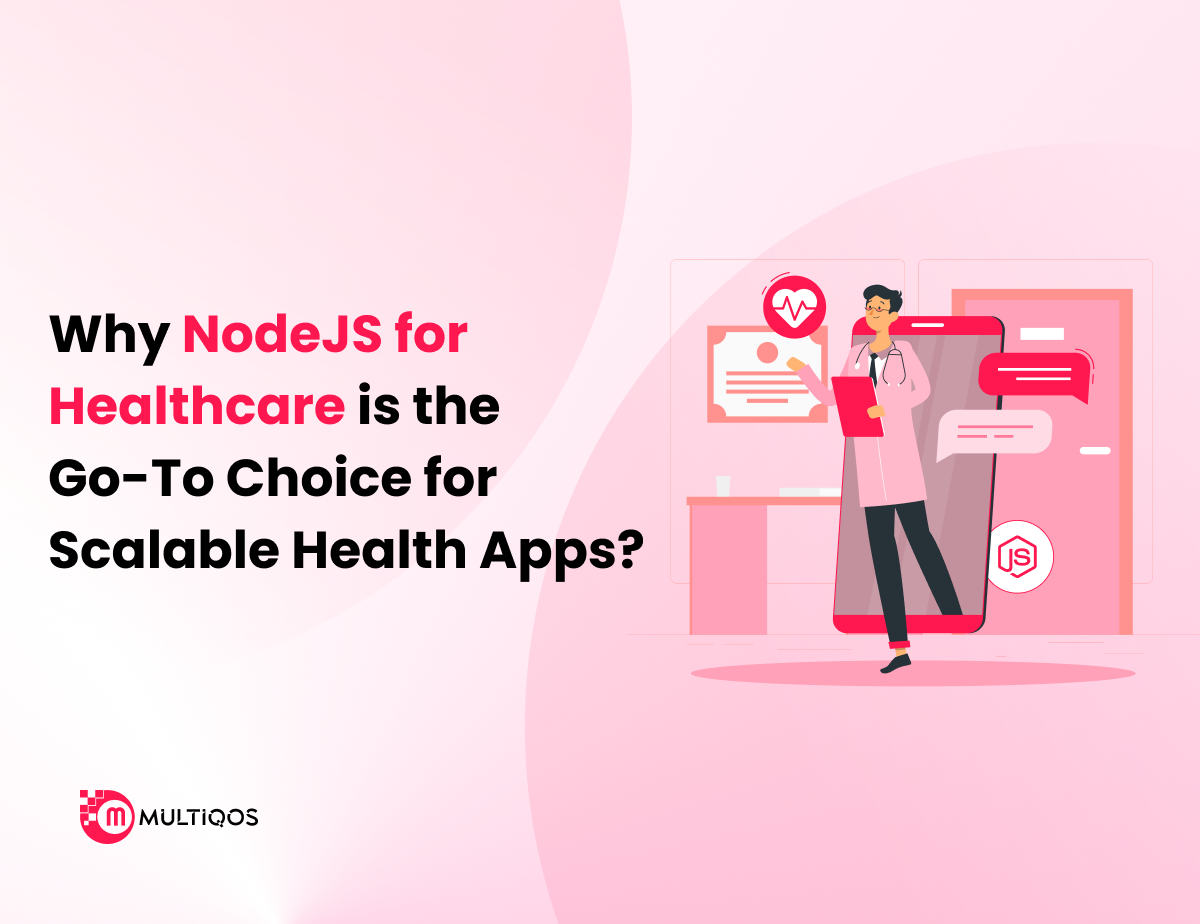
Summary:
NodeJS for healthcare is becoming the go-to choice for building scalable, secure, and high-performance health applications. Its non-blocking, event-driven architecture makes it ideal for real-time features like telemedicine, patient monitoring, and live health data processing. NodeJS enables fast development, easy integration with APIs and legacy systems, and supports modular, microservice-based architectures for better scalability.
It also allows developers to meet compliance requirements such as HIPAA. With strong community support and a rich ecosystem, NodeJS for healthcare offers the flexibility and efficiency needed to develop modern digital health solutions that can adapt and grow with user demand.
Introduction
The healthcare system embraces rapid digital changes, with the increasing requirement for applications that are fast, scalable, and secure. From telemedicine platforms to real-time patient monitoring and electronic health records (EHR) systems, modern health services should handle large amounts of data when providing a spontaneous user experience to modern healthcare services. This is the place where NodeJS stands as a strong growth alternative for healthcare services.
NodeJS is known for its event-driven architecture and non-blocking I/O, and enables developers to create scalable and high-performance healthcare apps that meet the developed requirements of patients, providers, and administrators. In this blog, we dive into why NodeJS scalable healthcare apps have become an alternative to developing and how it supports innovation in the medical landscape.
Understanding the Demands of Healthcare Applications
Modern healthcare apps should do more than just function; they need to perform flawlessly in a high-pressure, data-sensitive environment. Here are important requirements for all healthcare services:
- Real-time data processing: Healthcare services highly depend on real-time data when it comes to patient data monitoring, telemedicine, and diagnosis. NodeJS development effectively administers asynchronous events, which makes it one of the best and ideal platforms for streaming health data without any delay, that too in real-time.
- High availability and uptime: Downtime can surely compromise patient care and security when it comes to a healthcare development system. For this, NodeJS supports around-the-clock availability, load balancing, and ensures the application remains operational all the time.
- Compliance and data security: For any healthcare system, compliance with HIPAA, GDPR, and other standards is essential. Node.js enables secure data processing with encryption, role-based access, and middleware to apply regulatory compliance.
- Integration with legacy systems and third-party APIs: The healthcare system often necessary to integrate with existing EHR, EMR, and IoMT units. NodeJS can make this easier with robust support for RESTful APIs and flexible middleware solutions.
Scalability to handle growing user bases: When expanding the healthcare platform, they should support more users without compromising performance. NodeJS enables simple horizontal scaling and a microservices architecture to support the growth of demand.
Benefits of Using Node.js in Healthcare App Development
Healthcare apps must be scalable, fast, and responsible for fulfilling quality care and compliance standards. Taking advantage of NodeJS for healthcare app development provides many benefits that fully match these requirements.
1. Scalability for High-Performance Needs
Healthcare platforms, especially telemedicine or remote patient monitoring, should support thousands of users at the same time. NodeJS for healthcare services provides a mild, non-blocking architecture that easily scales both vertically and horizontally. This creates an ideal environment for manufacturing apps that can scale with increasing demand without compromising performance or speed.
2. Real-Time Data Handling
As we all know, the healthcare system depends much on real-time data for functionalities such as live chat, instant notification, patient monitoring, and portable device synchronization with medical experts. However, when you choose to work with a reliable Node.js development company, developers can enable real-time, event-driven apps using server-side events and websites. Additionally, it ensures quick collaboration between healthcare development service providers and patients, which is crucial for timely medical intervention.
3. Faster Development with JavaScript Everywhere
Using JavaScript on both client and server pages helps to streamline development and reduce the market from time to time. Teams can reuse the code, improve the collaboration, and speed up the test cycles. Choosing NodeJS for healthcare provides a quick iteration, delivers features immediately, and stays ahead in the competing digital health era.
4. Microservices & Modular Architecture
Enterprise healthcare apps benefit from a modular design where services (such as invoicing, planning, posts, etc.) are decided. NodeJS for healthcare supports microservice architecture so that the growth team can work with independent modules that can be distributed and scaled separately. This leads to more flexible systems and reduces the risk of the entire system failing.
5. Strong Community & Ecosystem
You should know that the Node.js system is supported by an active and large community of developers, libraries and frameworks. For the health care app developers, this means rapid troubleshooting, updates, a continuous stream of innovations and access to health service -specific modules. When it comes to using NodeJS for healthcare development, developers do not need to reinvent the wheel; Instead, they can build on a solid foundation of proven equipment and best practices.
6. Security Enhancements
Data security is one of the biggest concerns in healthcare development. With proper implementation of healthcare software development solutions, Node.js can distribute safe APIs, use strong authentication protocols, and integrate data encryption techniques. It also supports regular security audits and third-party compliance equipment to meet rules such as HIPAA and GDPR.
Final Thoughts
As the healthcare system continues to develop, the requirement for scalable applications with high protest is more important than ever. NodeJS for healthcare provides a reliable, efficient, and modern solution to meet these requirements. The ability to handle real-time data supports microservices architecture, ensuring that rapid performance makes it an ideal alternative to create a safe and scalable health technique solution.
Whether you develop a telemedicine app, EHR system, or a platform for patient engagement, choosing the right technology subject can affect your success. If you want to create a strong healthcare system, it is time to hire Node.js developers who understand the unique challenges and compliance requirements of the healthcare system. With the right team and the right technology, you can offer innovative, future-prepared solutions that separate the patient’s care.
FAQs
Node.JS is ideal for health services due to the non-blocking, event-mechanized architecture, enables data processing in real-time, scalability and rapid performance. It is important to handle all sensitive medical data and large user bases effectively.
Indeed. Node.js supports best security practices, including secure APIs, data encryption, and much more. With the right implementation, it can meet HIPAA and other needs for compliance with healthcare services.
You can book a free consultation with the healthcare app experts to discuss the needs of your project goals, technology needs, and scalability, with no commitment required.
Our team at MultiQoS combines knowledge of deep healthcare with proven Node.js development skills and provides scalable, safe, and compliant solutions tailored to startups and businesses.
Get In Touch


